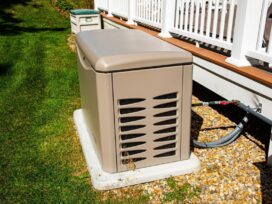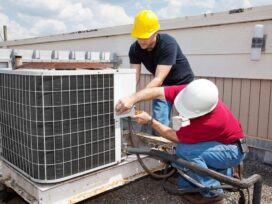
Unlock Hidden Savings and Comfort: The Complete Guide to HVAC Audits
In today’s energy-conscious world, efficiency and comfort go hand-in-hand. Yet, many homeowners and facility managers unknowingly lose money and compromise indoor comfort due to an under-performing HVAC system. The solution? A professional HVAC audit.
An HVAC (Heating, Ventilation, and Air Conditioning) audit is more than just a routine check-up—it’s a comprehensive diagnostic that evaluates system performance, identifies energy waste, and provides a roadmap for improvements. Whether you manage a large commercial building or simply want a cozier, more efficient home, an HVAC audit is a powerful step toward long-term savings and system health.
What Is an HVAC Audit?
An HVAC audit is a systematic evaluation of your heating and cooling system’s performance. It involves inspecting all major components—furnace, air conditioner, ductwork, ventilation, thermostat controls—and analyzing how efficiently they work together. The purpose of the audit is to uncover inefficiencies, safety concerns, air quality issues, and opportunities to lower your energy bills.
Auditors use tools such as airflow meters, infrared cameras, pressure gauges, and energy modeling software to provide data-backed insights. The end result is a detailed report with practical recommendations, cost estimates, and projected savings.
Why HVAC Audits Matter
- Energy Efficiency
The average HVAC system accounts for 40-60% of a building’s total energy consumption. If your system is outdated, poorly maintained, or incorrectly sized, it can waste vast amounts of energy. An HVAC audit identifies these inefficiencies and recommends upgrades or maintenance that can drastically improve performance.
- Cost Savings
By detecting and correcting energy loss points—like leaky ducts, dirty filters, or incorrect thermostat settings—an audit can lead to major cost savings. According to the U.S. Department of Energy, energy-efficient HVAC upgrades can cut utility bills by 20–40%. That adds up over time, especially in larger buildings or extreme climates.
- Improved Comfort
Do you experience uneven temperatures between rooms? Hot or cold spots? Poor humidity control? An audit helps rebalance your HVAC system, ensuring consistent airflow and comfort throughout your space.
- Longer Equipment Life
Overworked or neglected HVAC components wear out faster. Regular audits help identify stress points and maintenance needs, reducing the risk of breakdowns and extending the life of your equipment. Preventive action is far cheaper than emergency repairs or premature replacements.
- Healthier Indoor Air Quality
Indoor air can contain dust, mold, allergens, or even harmful gases. HVAC audits evaluate filters, ventilation, and humidity control to ensure clean, healthy air. This is particularly important for homes with children, elderly residents, or people with respiratory issues.
What Happens During an HVAC Audit?
A thorough HVAC audit follows a structured process:
- Pre-Audit Interview
The technician will gather information about your building, HVAC history, energy bills, known issues, and comfort concerns. This helps tailor the audit to your specific needs.

- Equipment Inspection
The auditor examines all major components:
Furnace or boiler
Air conditioning unit
Air handler and blower
Ductwork and insulation
Vents and returns
Thermostats and control systems
They check for wear, damage, dirt buildup, and improper installation.
- Performance Testing
Tests may include:
Airflow measurement: Ensures balanced distribution to all rooms.
Duct leakage testing: Identifies where air is escaping.
Refrigerant level check: Confirms proper cooling operation.
Thermal imaging: Spots hidden heat or cold loss in walls and ducts.
- Data Analysis
Using energy modeling software, auditors compare your system’s actual performance against expected benchmarks. This analysis highlights inefficiencies and potential upgrades.
- Final Report
You’ll receive a comprehensive report including:
- Audit findings
- Efficiency ratings
- Prioritized recommendations
- Cost estimates and payback timelines
- Potential energy savings
Common Audit Recommendations
Based on audit findings, some common upgrades include:
- Replacing or sealing leaky ductwork
- Upgrading to energy-efficient HVAC units
- Installing programmable or smart thermostats
- Improving insulation or ventilation
- Replacing old filters or cleaning air handlers
- Balancing airflow with zoning systems
These improvements don’t just cut costs—they also enhance indoor comfort and environmental sustainability.
Conclusion: Small Audit, Big Impact
An HVAC audit is a small investment with big rewards. From lowering monthly utility bills to improving comfort and extending equipment lifespan, it delivers value on multiple fronts. In a world where energy costs and indoor health matter more than ever, ignoring your HVAC system is a costly mistake.
Take control of your energy future—schedule a professional HVAC audit and unlock the hidden potential of your indoor environment.

HVAC MasterLabs
Barsha Heights, Dubai, UAE
971-501001615




